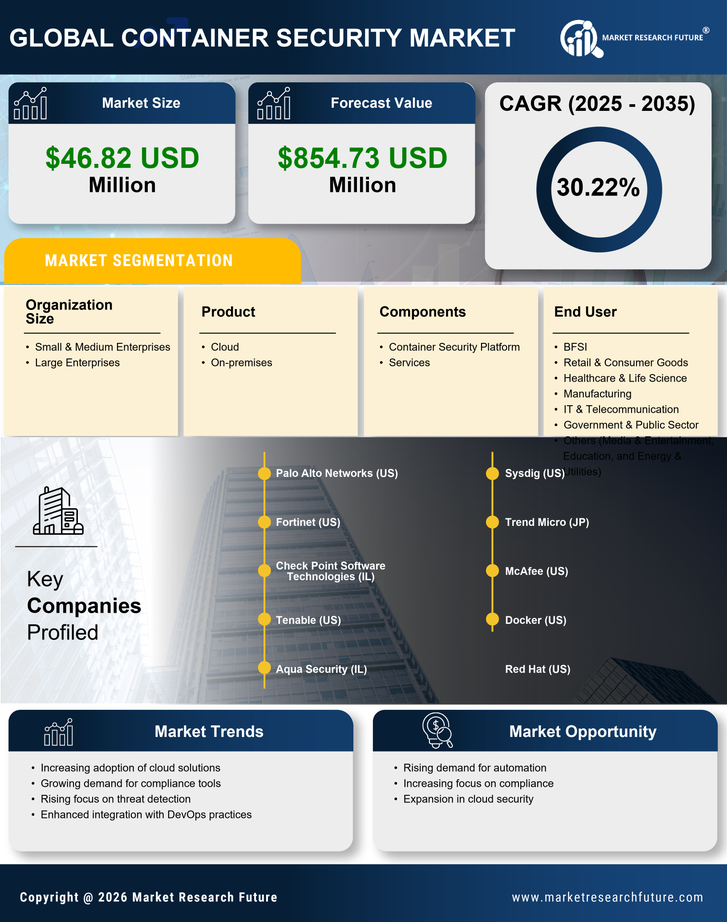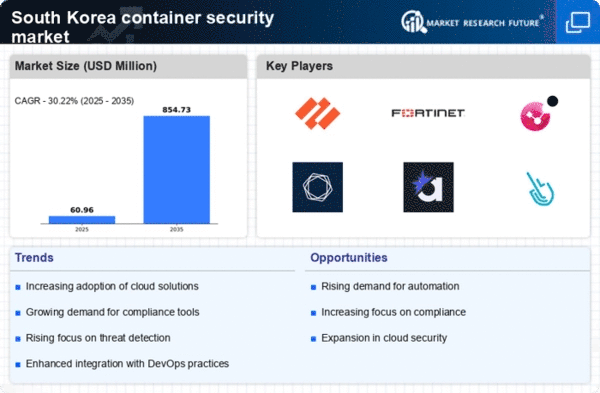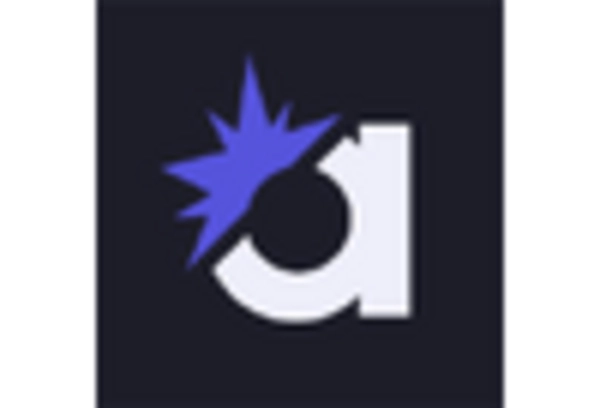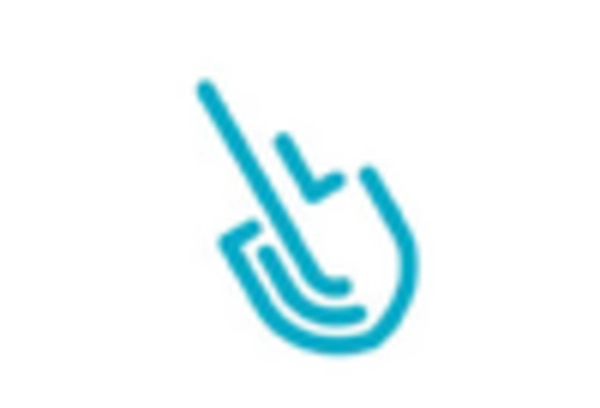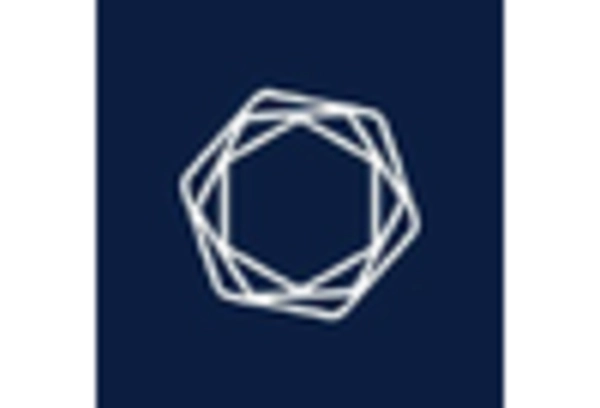Rising Cybersecurity Threats
The container security market in South Korea is experiencing heightened demand due to the increasing frequency and sophistication of cyber threats. As organizations migrate to containerized environments, they become more vulnerable to attacks such as data breaches and ransomware. In 2025, it is estimated that cybercrime could cost the global economy over $10 trillion annually, prompting South Korean enterprises to invest heavily in security solutions. This trend indicates a growing recognition of the need for robust container security measures to protect sensitive data and maintain operational integrity. Consequently, the container security market is likely to expand as businesses prioritize cybersecurity investments to mitigate risks associated with containerized applications.
Government Initiatives and Support
The South Korean government is actively promoting digital transformation and cybersecurity initiatives, which significantly impact the container security market. With the implementation of policies aimed at enhancing national cybersecurity infrastructure, there is a push for organizations to adopt advanced security measures. The government has allocated substantial funding, estimated at $1 billion, to bolster cybersecurity capabilities across various sectors. This support encourages businesses to invest in container security solutions, thereby driving market growth. As regulatory frameworks evolve, compliance with government standards becomes essential, further propelling the demand for container security technologies in South Korea.
Increased Adoption of Cloud Services
The rapid adoption of cloud services in South Korea is a key driver for the container security market. As organizations increasingly migrate their applications to cloud environments, the need for effective security solutions becomes paramount. In 2025, the cloud computing market in South Korea is projected to reach $10 billion, with a significant portion of this growth attributed to containerized applications. This shift necessitates the implementation of container security measures to safeguard data and applications in the cloud. Consequently, the container security market is likely to benefit from this trend, as businesses seek to ensure the security of their cloud-based operations.
Growing Demand for DevSecOps Practices
The container security market is witnessing a surge in demand for DevSecOps practices within South Korea. As organizations strive to integrate security into their development processes, the adoption of container security solutions becomes increasingly critical. This approach not only enhances security but also accelerates the development lifecycle. In 2025, it is estimated that 70% of South Korean enterprises will adopt DevSecOps methodologies, leading to a greater emphasis on container security. This trend indicates a shift towards proactive security measures, driving the growth of the container security market as businesses seek to embed security within their development workflows.
Emergence of Advanced Security Technologies
The container security market in South Korea is being propelled by the emergence of advanced security technologies. Innovations such as runtime protection, vulnerability scanning, and automated compliance checks are becoming essential components of container security solutions. As organizations seek to enhance their security posture, the adoption of these technologies is expected to rise. In 2025, the market for advanced security solutions is projected to grow by 25%, reflecting the increasing importance of sophisticated security measures in containerized environments. This trend suggests that the container security market will continue to evolve, driven by the need for cutting-edge technologies to address emerging security challenges.
